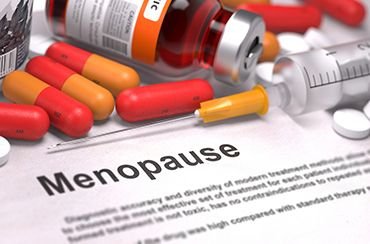As women enter their 40s and 50s, many begin to experience symptoms of menopause that can significantly affect their quality of life. Hot flashes, night sweats, mood swings, and vaginal dryness are just a few of the challenges that come with this natural life transition. Menopause Hormone Therapy (MHT), also known as Hormone Replacement Therapy (HRT), is one of the most effective treatments for managing these symptoms.
This complete guide will walk you through everything you need to know about menopause hormone therapy—what it is, how it works, the benefits and risks, and whether it might be right for you.
What Is Menopause?
Menopause marks the end of a woman’s reproductive years and is officially diagnosed after 12 consecutive months without a menstrual period. The transition usually begins between ages 45 and 55, though symptoms can start earlier during the perimenopause phase.
During this time, the ovaries gradually produce less estrogen and progesterone—the two key hormones that regulate menstruation and support reproductive health. The decline in hormone levels leads to a range of physical and emotional symptoms.
What Is Menopause Hormone Therapy (MHT)?
Menopause Hormone Therapy (MHT) involves supplementing the body with estrogen, and sometimes progesterone, to replace the hormones your body no longer produces after menopause. The goal is to relieve menopausal symptoms and reduce long-term health risks associated with estrogen deficiency, such as osteoporosis.
There are two main types of MHT:
1. Estrogen-Only Therapy (ET)
- Typically prescribed for women who have had a hysterectomy (removal of the uterus).
- Comes in various forms: pills, patches, gels, sprays, and vaginal creams or rings.
2. Combined Estrogen-Progestogen Therapy (EPT)
- Used for women who still have their uterus.
- Adding progestogen (natural or synthetic progesterone) helps protect the uterine lining from overgrowth, which can lead to endometrial cancer.
Benefits of Menopause Hormone Therapy
MHT offers a range of benefits, especially when started during the early stages of menopause (typically between ages 45–60):
✅ Relief from Menopausal Symptoms
- Hot flashes and night sweats
- Vaginal dryness and painful intercourse
- Sleep disturbances
- Mood swings and irritability
✅ Bone Health
- Estrogen helps maintain bone density and lowers the risk of osteoporosis and fractures.
✅ Heart Health (When Started Early)
- Some studies suggest MHT may lower the risk of heart disease when initiated within 10 years of menopause.
✅ Urogenital Health
- Improves urinary symptoms like frequency, urgency, and incontinence.
Risks and Considerations
Like all medical treatments, MHT carries potential risks, especially depending on your age, health history, and how long you use it.
⚠️ Potential Risks:
- Breast cancer (slightly increased with long-term use of combined therapy)
- Blood clots and stroke
- Gallbladder disease
⚠️ Who Should Avoid MHT?
- Women with a history of breast cancer, blood clots, liver disease, or unexplained vaginal bleeding.
- Those at high risk for cardiovascular disease should consult a specialist before starting therapy.
How Is Hormone Therapy Taken?
MHT is not one-size-fits-all. Your doctor will tailor treatment based on your symptoms, health history, and personal preferences. Common delivery methods include:
- Oral tablets (daily pill)
- Transdermal patches (applied to the skin)
- Topical gels or sprays
- Vaginal creams, rings, or tablets (for localized symptoms)
How Long Should You Stay on MHT?
Current guidelines recommend using the lowest effective dose for the shortest duration necessary to control symptoms. For many women, this means staying on therapy for 3 to 5 years, but some may benefit from longer use under medical supervision.
Non-Hormonal Alternatives
If hormone therapy isn’t right for you, several non-hormonal treatments can help manage menopause symptoms:
- Lifestyle changes (diet, exercise, stress reduction)
- SSRIs/SNRIs (certain antidepressants for hot flashes)
- Gabapentin (for night sweats)
- Vaginal moisturizers and lubricants
Is MHT Right for You?
If you’re over 40 and struggling with menopause symptoms that interfere with your daily life, it’s worth discussing hormone therapy with your healthcare provider. The decision to start MHT should be individualized, taking into account your symptoms, medical history, and personal preferences.
Final Thoughts
Menopause is a natural part of aging, but it doesn’t have to diminish your quality of life. Menopause Hormone Therapy can offer meaningful relief and help you stay active, healthy, and confident through midlife and beyond. Always consult your doctor or a menopause specialist to determine the safest and most effective options for your unique needs




